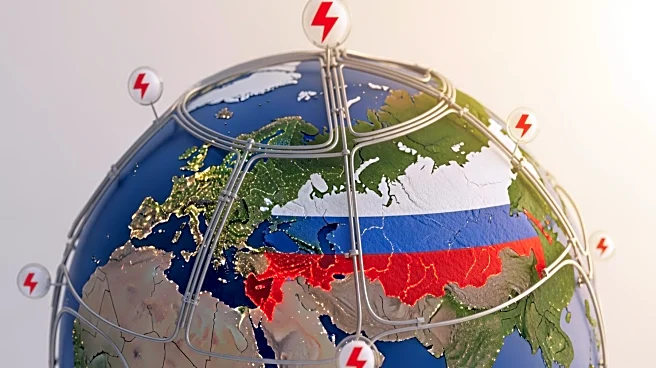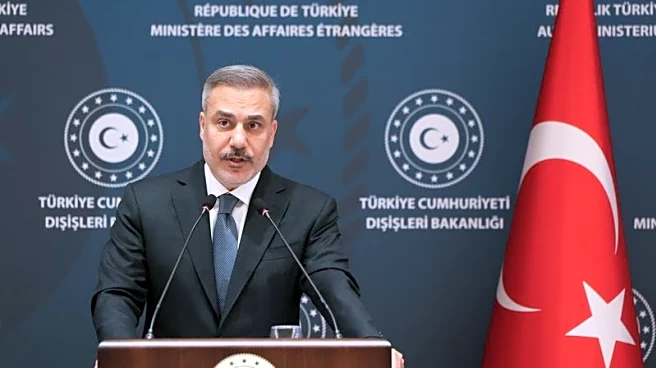What's Happening?
President Trump has granted Hungary a full exemption from U.S. sanctions on Russian oil and gas imports, following a meeting with Hungarian Prime Minister Viktor Orban at the White House. Orban emphasized
the critical nature of Russian energy supplies for Hungary, a landlocked country that relies heavily on pipeline imports. The exemption allows Hungary to continue receiving oil and gas through the Druzhba and TurkStream pipelines, despite broader U.S. efforts to limit Russian energy exports. This decision comes amid ongoing tensions between Hungary and the European Union over energy policy and the war in Ukraine.
Why It's Important?
The exemption is a pivotal development in U.S.-Hungary relations, highlighting the strategic importance of energy security for Hungary. It underscores the challenges faced by European countries in balancing national energy needs with international sanctions against Russia. For Hungary, the exemption provides a temporary solution to its energy supply concerns, but it may also deepen its reliance on Russian energy. The decision could influence EU energy policy, as Hungary's continued imports from Russia contrast with the EU's goal to phase out Russian energy by 2027. This move may also affect Hungary's diplomatic standing within the EU and its relations with other member states.
What's Next?
The exemption is likely to lead to further discussions within the EU regarding energy sanctions and the bloc's collective approach to Russian energy imports. Hungary's decision to maintain its energy ties with Russia may prompt other countries to seek similar exemptions, potentially complicating EU efforts to present a unified front against Russian aggression. The situation will require careful diplomatic management to reconcile Hungary's energy needs with broader European objectives. Additionally, the exemption may influence Hungary's foreign policy and its strategic alliances, both within the EU and globally.
Beyond the Headlines
The exemption raises broader questions about the ethical implications of energy dependence and the effectiveness of sanctions as a tool for geopolitical influence. Hungary's reliance on Russian energy highlights the complexities faced by countries with limited access to alternative sources. The decision also reflects the geopolitical balancing act between U.S. and Russian interests, with Hungary navigating its position between these global powers. Long-term, this could impact Hungary's role within the EU and its relationships with other international actors.










